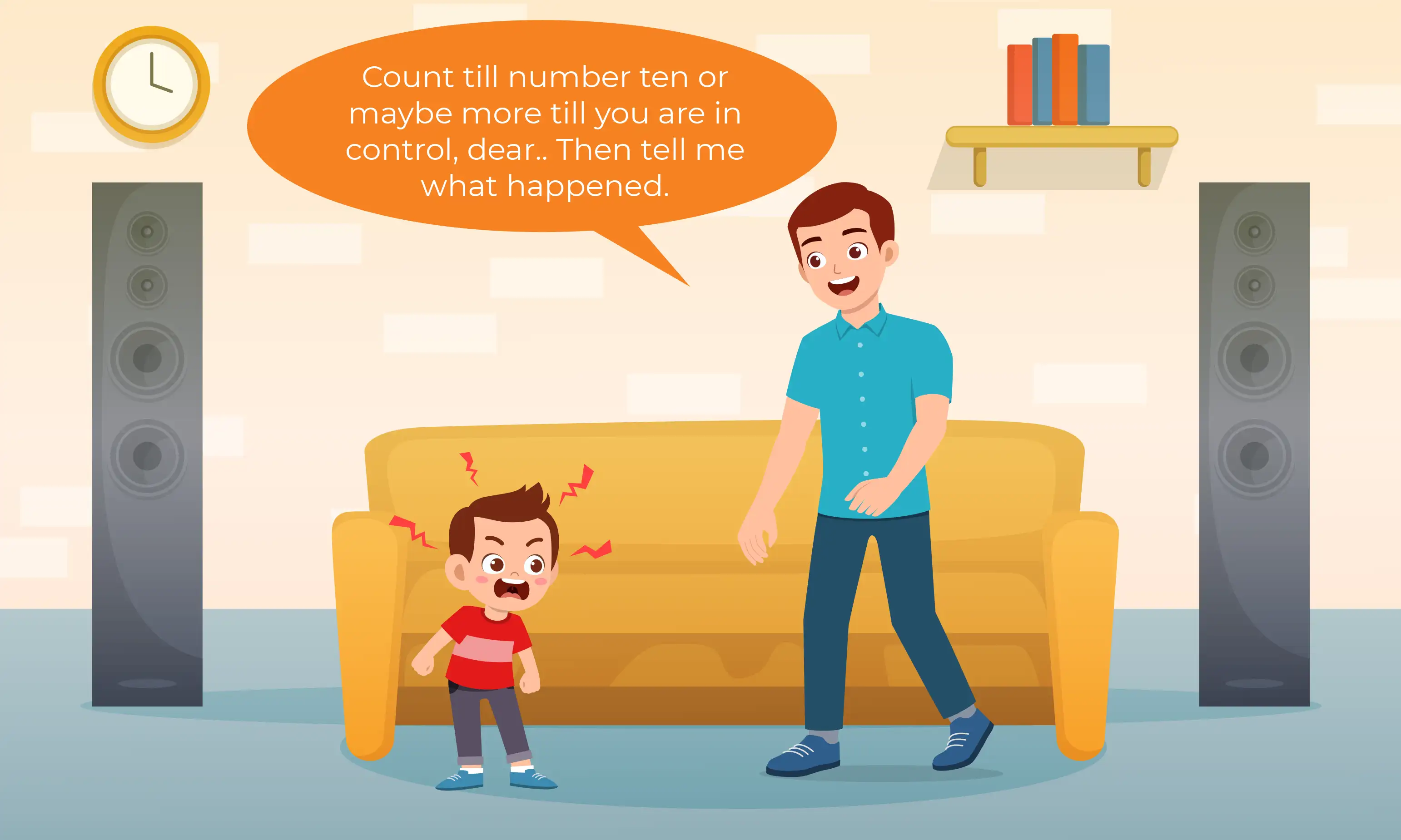Emotional Intelligence or EQ is valued less than IQ in our society. However, researchers say that emotional intelligence is more important than Intelligence Quotient for measuring the success rate of children in their later life.
Search For A Course
News & Articles
- Home
- News & Articles
- How to Strengthen Your Child's Emotional Intelligence
15 Jun, 2022
How to Strengthen Your Child's Emotional Intelligence

Children with good emotional intelligence and average intelligence are more successful than those with high IQ and less EQ in their later life. In addition, children with the ability to regulate their emotions grow up healthier, make more money in their later life, and are less likely to have criminal backgrounds and problems with alcohol when they become adults.
How Children's Dealing with their Emotions and Feelings?
Our culture's lack of emotional literacy has paved the way for broken parents raising broken kids in many households. Please remember that it is more challenging to mend a broken adult than raising a child with good emotional intelligence. Parents have to heal themselves before bringing up emotional intelligence in their children. Researchers say that kids have mainly three ways of dealing with their emotions and feelings.
- Repression
- Aggression
- Expression
1. Repression: Hiding what they feel, they get turbulent. This can be due to fear or feeling unsafe in expressing their real feelings. The same feelings throw back as adults, and many find ways of repressing them through ways like alcohol, or mindlessly scrolling through media or being a workaholic so that they can run away from them.
2. Aggression: Many kids vent their feelings and emotions in a suppressed and authoritarian environment with aggressive manners. Usually, when they feel powerless and helpless, they express it as aggression, rage, and loud voices. This results in them growing up as bullies and sometimes violent personalities when these emotions bubble up again. As adults, they will have harsh thoughts about themselves and others.
3. Expression: A few lucky ones can grow up in a welcoming environment where all feelings are welcomed. They have listeners who patiently empathise with them, and after spending some time with them, kids feel safe and all okay. This is acceptance in all manners. Every bit of the child is accepted in such an environment. They can express themselves in whatever form they want, ranging from tears to getting angry. These children grow up as adults with high emotional intelligence who reach out for their journal to write what they feel or call up a friend to ask whether he or she can listen to them for some time or run, do some yoga or speak to the therapist in their later life. They feel the emotions and let them go healthily and positively.
It is explicitly clear that it is always better to give children space to express what they feel rather than finding solutions when dealing with emotions. Children expect empathy rather than answers from adults. As adults, we should accept that it is always impossible to make them happy. It is also not the right thing to do. They need a patient listener rather than a fixer for their problems. This helps in building up the emotional intelligence of children.
Read Also: Top Essential Life Skills For Your Child
Steps Involved in Strengthening Emotional Intelligence in Children
Parents who coach their child's emotions constantly raise them to become emotionally well-balanced and regulated individuals than parents who are dismissive or disapprove of their feelings. They are called Emotion Coaching Parents. Emotion coaching parents value all the emotions in their child. This includes negative emotions and is never impatient in dealing with them. Instead, they use the emotional experience as an opportunity to bond with their child and teach them. Such parents help children label their emotions and guide them in solving the problem.
The following steps can be practiced to strengthen emotional intelligence in children.
- Be Aware of Your Child's Emotions
- Treat Emotions as an Opportunity to Connect and Teach your Child
- Listen to Them and Validate their Feelings
- Help them Label their Emotions
- Help the Child to Solve the Problem with Limits
1. Be Aware of Your Child's Emotions
Parents who emotionally coach their children are aware of their feelings and never try to run away from them. They value their child's emotions the same way they love theirs. Children of such parents do not have to shout out their feelings to get attention from their parents. Instead, their surfaces are acknowledged at the right time.
2. Treat Emotions as an Opportunity to Connect and Teach your Child
Do not consider your child's emotions as an inconvenience. Make it a point not to get irritated when they become emotional. Have control of your emotions before taking control of dealing with the emotions of your child. Emotions are an excellent way to connect with your child. Grab the opportunity and guide them through the challenge to control their feelings. Also, Preschool in Abu Dhabi creates room for kids to master the basics of emotional intelligence.
3. Listen to Them and Validate their Feelings
When the child is emotionally expressing something, take care to give your full attention and listen to them. Please provide them with a feeling of empathy, reflect on what you hear, and make them feel you understand what they are experiencing. This assurance of sympathy and relation with the situation can give the child comfort and confidence.
4. Help them Label their Emotions
Help children build an emotional vocabulary after listening to their emotions each time. Develop awareness of their emotional expression and help them label their feelings. This helps in self-validating their feelings and leading to solutions.
5. Help the Child to Solve the Problem with Limits
Make children aware that all their emotions are welcome, but all behaviors are not. Please help your child cope with their emotions by developing problem-solving skills. Limit the expression to conduct. This involves helping your child set goals and generating solutions to reach those goals.
Building emotional intelligence is an ongoing process. The journey has its difficulties during childhood and adolescence. Sometimes the steps of emotion coaching happen quickly. Other times not, and it takes a lot of time. Patience is the key to success. The time needed to complete all these steps depends on the depth of the problem. Sometimes all these steps cannot be completed in one go. Help children build emotional intelligence through courses on emotional intelligence in Abu Dhabi.
Read Also: Why is Physical Activity Important For Child Development?
Browse Through Time Master's Other Services in Abu Dhabi
| Preschool in Abu Dhabi | Summer Camp in Abu Dhabi | Winter Camp in Abu Dhabi | Spring Camp in Abu Dhabi | Zumba Classes in Abu Dhabi |
Category

Meghna Pavan
Megha Pavan is the program coordinator of Time Master in Abu Dhabi and Mussafah. She has experience of 5 years as a program coordinator for kids. She is an excellent child developer and helped a lot of kids to develop their personalities. She has also conducted many camps for kids in Abu Dhabi and Mussafah.


Comments